Filter by

The science of bureaucracy :risk decision making and the US Environmental Pro…
How the US Environmental Protection Agency designed the governance of risk and forged its legitimacy over the course of four decades. The US Environmental Protection Agency was established in 1970 to protect the public health and environment, administering and enforcing a range of statutes and programs. Over four decades, the EPA has been a risk bureaucracy, formalizing many of the methods of t…
- Edition
- -
- ISBN/ISSN
- 9780262356671
- Collation
- 1 online resource (452 pages).
- Series Title
- -
- Call Number
- -

Conflicted American landscapes
"Traces six contradictory American ideologies of nature from their emergence in the late eighteenth century to the present to explore how inconsistent conceptions of nature lead to conflict"--OCLC-licensed vendor bibliographic record.
- Edition
- -
- ISBN/ISSN
- 0262363097
- Collation
- 1 online resource.
- Series Title
- -
- Call Number
- -
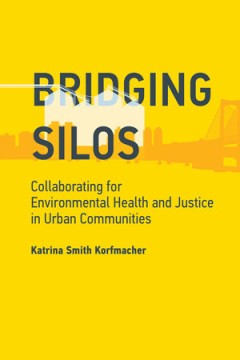
Bridging the silos :collaborating for environment, health, and justice in urb…
OCLC-licensed vendor bibliographic record.
- Edition
- -
- ISBN/ISSN
- 9780262354981
- Collation
- 1 online resource (376 pages) :illustrations.
- Series Title
- -
- Call Number
- -
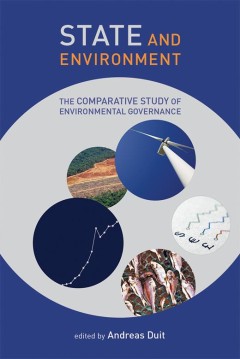
State and environment :the comparative study of environmental governance
This volume of comparative studies documents the continuing relevance of the state in environmental politics and policy. The book also demonstrates the analytical power of the comparative approach to the study of environmental politics and policy, offering cross-national comparisons of environmental governance in both developed and developing countries. Some chapters are based on qualitative st…
- Edition
- -
- ISBN/ISSN
- 9780262323871
- Collation
- 1 online resource :illustrations.
- Series Title
- -
- Call Number
- -
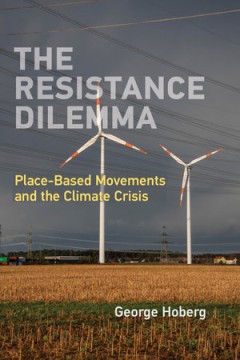
The resistance dilemma :place-based movements and the climate crisis
"The book focuses on a strategic choice by the North American wing of the global climate movement: to ally themselves with place-based interests, including Indigenous groups, to block new coal plants, coal port expansion, fracking, and more recently, oil sands pipelines. The strategy by climate activists to target fossil fuel infrastructure has been effective at movement building and driving po…
- Edition
- -
- ISBN/ISSN
- 9780262367158
- Collation
- 1 online resource.
- Series Title
- -
- Call Number
- -

Mnemonic ecologies :memory and nature conservation along the former iron curtain
"Examination of the relationships among conservation, restoration, novel ecosystems, collective trauma, and memorialization as illustrated by the Green Belt between the former East and West Germanies"--OCLC-licensed vendor bibliographic record.
- Edition
- -
- ISBN/ISSN
- 9780262375245
- Collation
- 1 online resource.
- Series Title
- -
- Call Number
- -
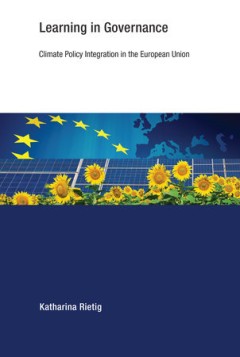
Learning in governance :climate policy integration in the European Union
"This book helps us to better understand how learning in decision-making processes impacts policy change and the integration of climate change objectives into other policy areas in the European Union"--OCLC-licensed vendor bibliographic record.
- Edition
- -
- ISBN/ISSN
- 0262366789
- Collation
- 1 online resource.
- Series Title
- -
- Call Number
- -
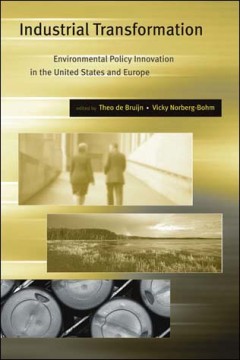
Industrial transformation : environmental policy innovation in the United Sta…
"The papers included were first presented at a workshop at the Kennedy School of Harvard University in the spring of 2001"-The United States and European countries are experimenting with a new generation of policy approaches for combating environmental degradation. Industrial Transformation evaluates the effectiveness of twelve innovative voluntary, collaborative, and information-based programs…
- Edition
- -
- ISBN/ISSN
- 9780262269391
- Collation
- 1 online resource (x, 408 pages) : illustrations
- Series Title
- -
- Call Number
- 338 IND

Rethinking Global Land Use in an Urban Era
Today, global land use is affected by a variety of factors, including urbanization and the growing interconnectedness of economies and markets. This book examines the challenges and opportunities we face in achieving sustainable land use in the twenty-first century. The contributors, from a range of disciplines and countries, present new analytical perspectives and tools for understanding key i…
- Edition
- -
- ISBN/ISSN
- 9780262322126
- Collation
- 1 online resource.
- Series Title
- -
- Call Number
- -
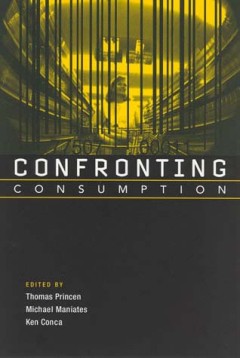
Confronting consumption
Essays that offer ecological, social, and political perspectives on the problem of overconsumption.OCLC-licensed vendor bibliographic record.
- Edition
- -
- ISBN/ISSN
- 9780262281928
- Collation
- 1 online resource (x, 382 pages)
- Series Title
- -
- Call Number
- -
 Computer Science, Information & General Works
Computer Science, Information & General Works  Philosophy & Psychology
Philosophy & Psychology  Religion
Religion  Social Sciences
Social Sciences  Language
Language  Pure Science
Pure Science  Applied Sciences
Applied Sciences  Art & Recreation
Art & Recreation  Literature
Literature  History & Geography
History & Geography